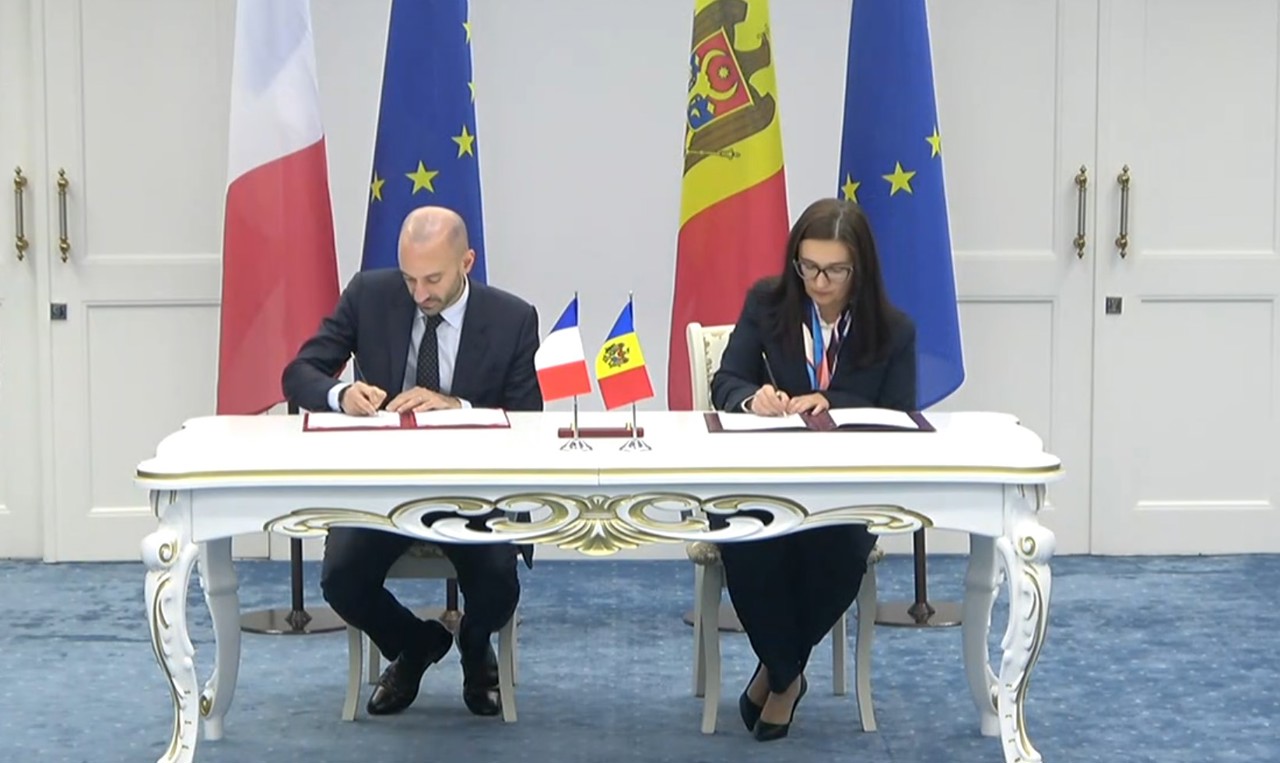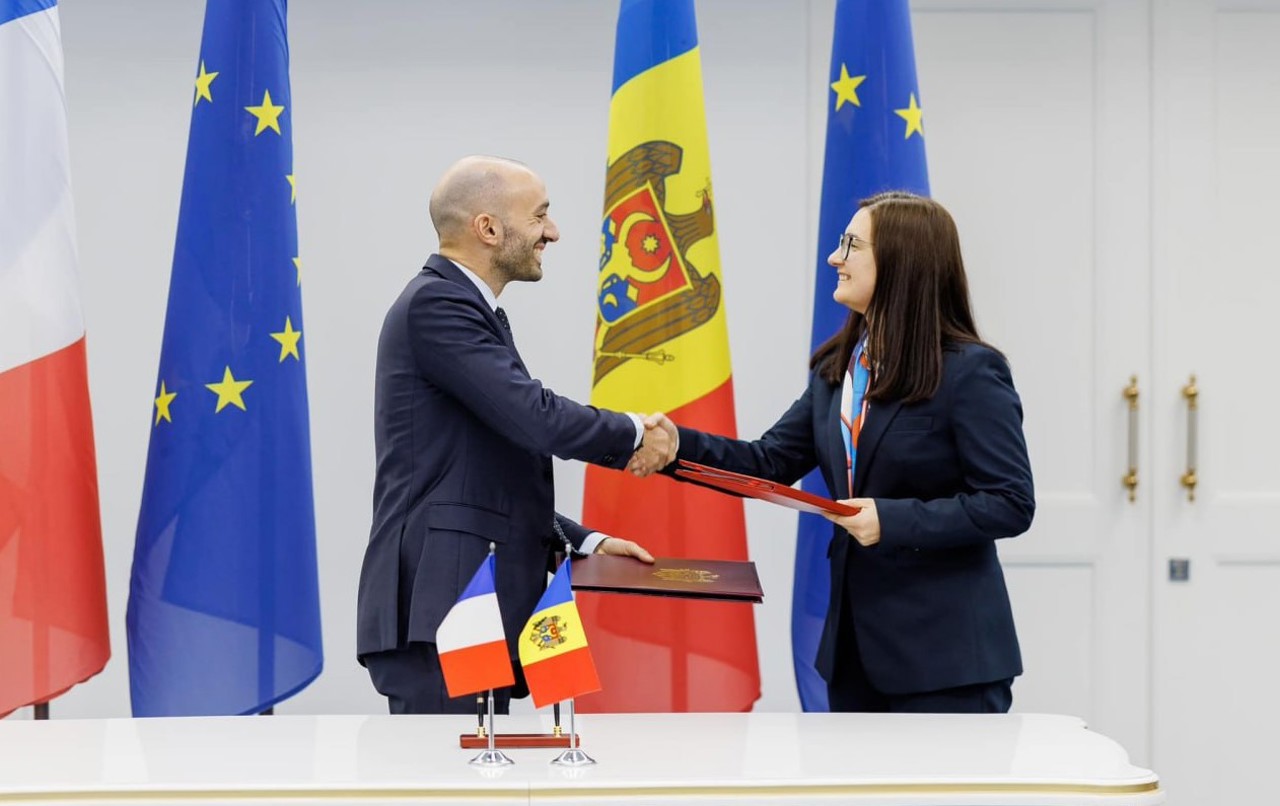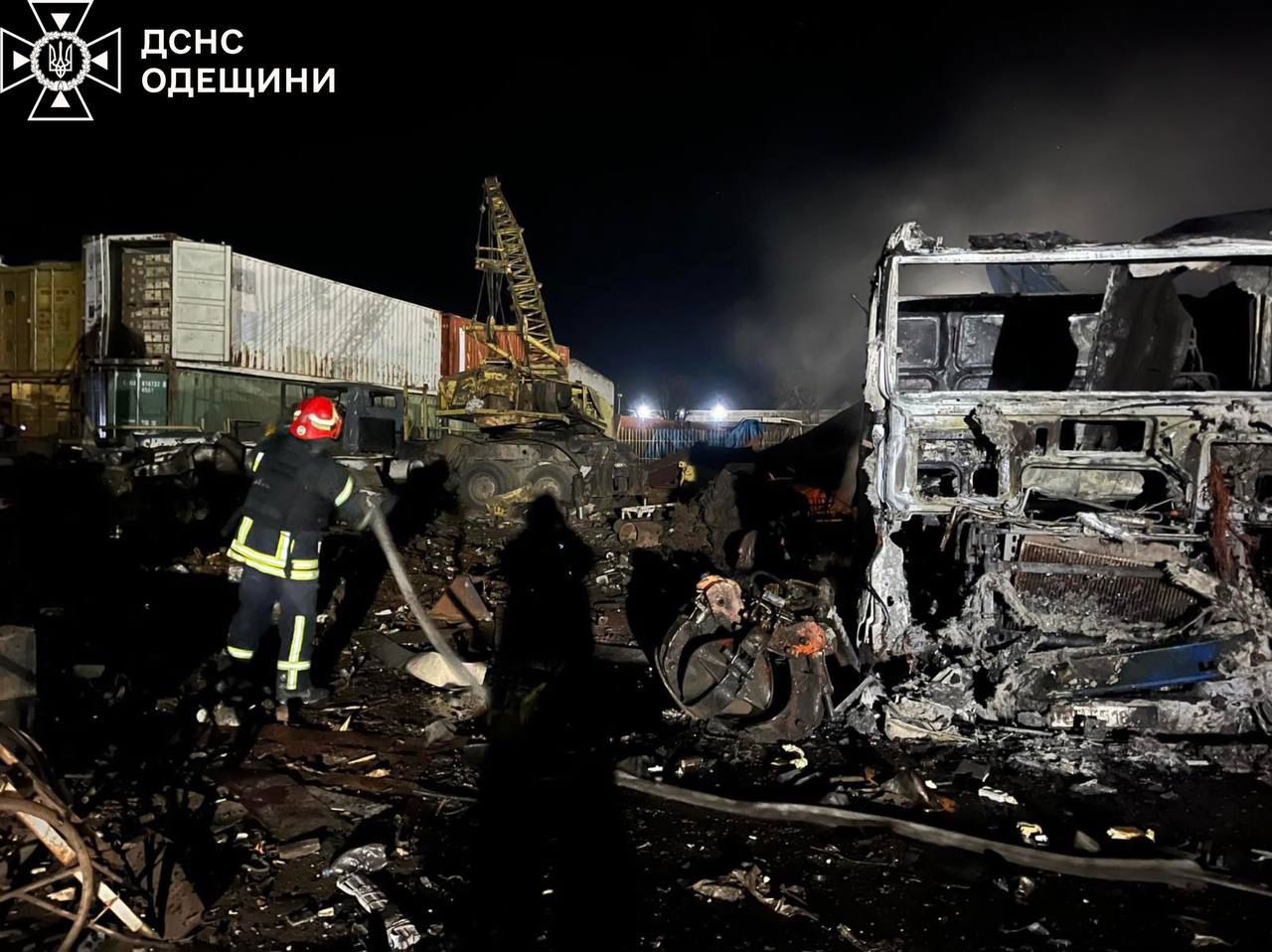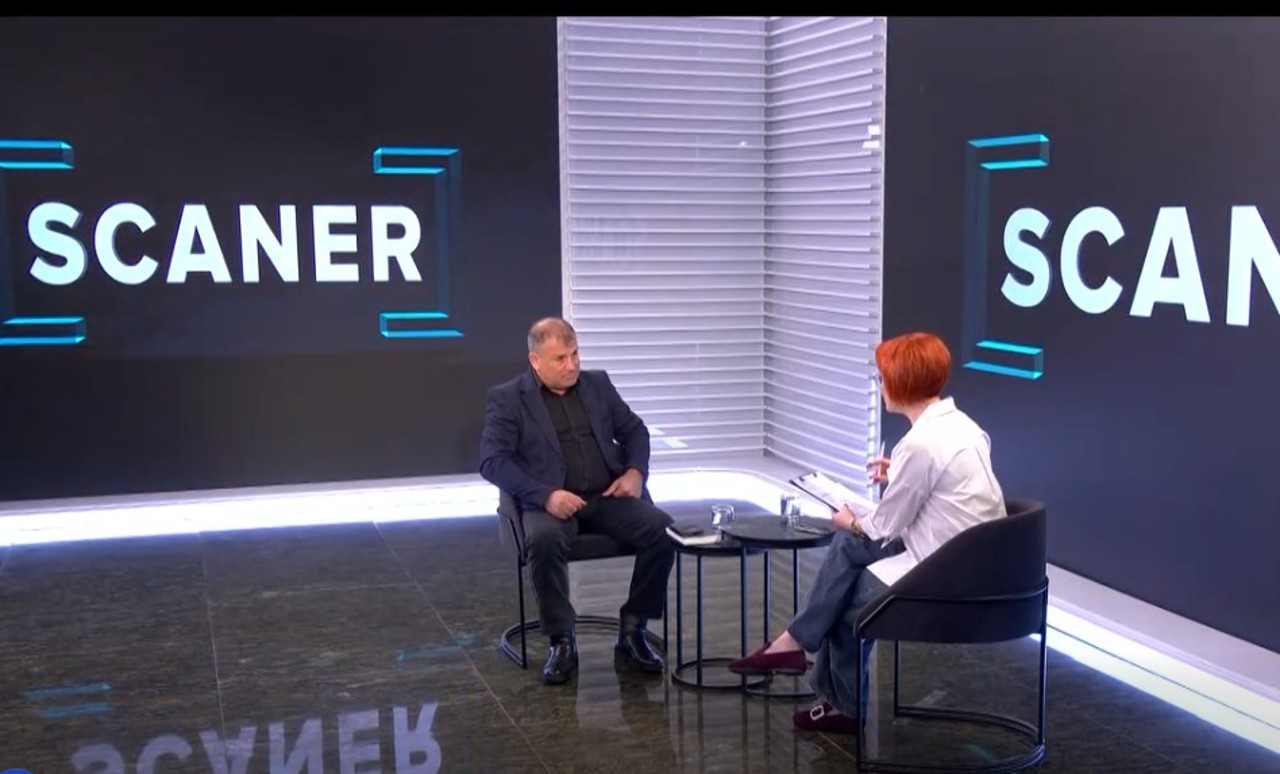Moldova signs key Memorandum for EU accession progress
The Republic of Moldova will have the opportunity to adopt France's best practices in European integration. A Memorandum to this effect was signed on Friday in Chișinău by the heads of Moldova's Office for European Reintegration and France's General Secretariat for European Affairs.

"This Memorandum represents an important step in strengthening our institutional capacities, particularly now as we undergo bilateral screening and prepare for formal accession negotiations. We aim to begin early next year, should the member states determine we are ready," emphasised Cristina Gherasimov, Deputy Prime Minister for European Integration.
In turn, Benjamin Haddad, France's Minister Delegate for Europe, stated that the Republic of Moldova has recently demonstrated the resilience of its democratic institutions by holding multiple free and transparent elections, during which Moldovan citizens unequivocally reaffirmed their aspiration for a democratic, free Moldova, as a member of the European Union.
"Moldova's commitment to democracy and its European path is all the more remarkable given that the recent elections took place amidst unprecedented attacks and foreign interference. These attacks, orchestrated by Russia and its proxies, sought not only to undermine the proper functioning of Moldova’s democracy but also to erode the fundamental values we cherish: peace and stability," Haddad said.
The French Minister Delegate for Europe reiterated France's ongoing commitment to combating disinformation and foreign interference, which aim to divide societies and undermine trust in institutions, particularly European ones.
Haddad further emphasised the importance of combating interference in the cyber domain, suggesting that the Republic of Moldova could benefit from training at the Capacity-Building Centre for Cybersecurity in the Western Balkans (CEBO) in Podgorica, established in collaboration with Slovenia and Montenegro. "Foreign interference, whether in the informational or cyber domain, is a common threat we must confront as Europeans by sharing experiences and equipping ourselves with effective regulatory and control tools."
The European official also noted that, despite the unacceptable use of corruption networks and large-scale vote-buying schemes intended to distort the election results, these destabilisation attempts ultimately failed.
Translation by Iurie Tataru







